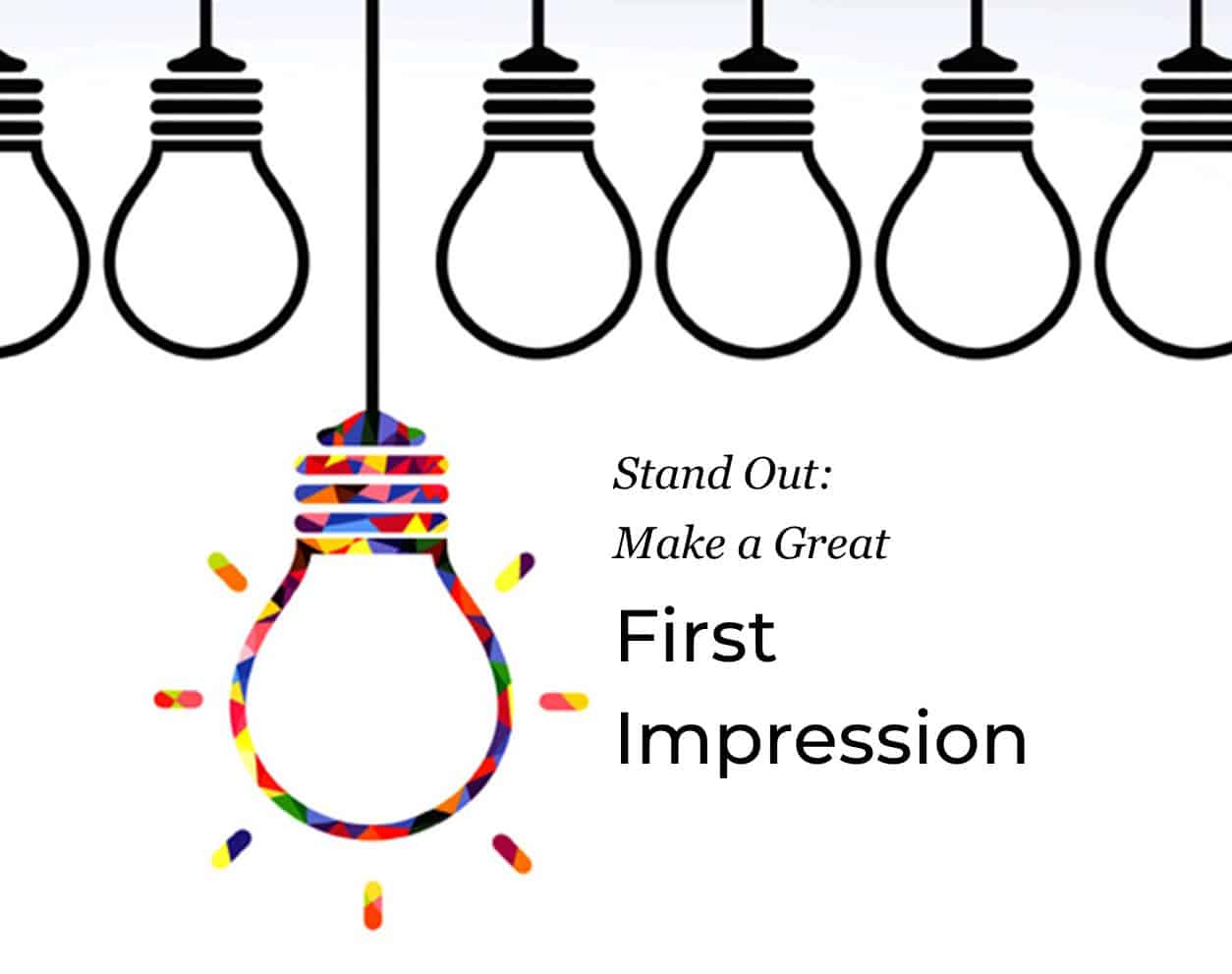Make a Great First Impression
You only get one chance to make a first impression. Research shows that people make their first impressions of you in just two seconds, so there’s really no time to lose. In today’s fast-paced, quick-to-judgement world, it is more important than ever to make quick, confident, first impressions. Making a great first impression isn’t always easy, but it’s well worth attempting to as much as possible.

Be on Time
Being on time makes you look prepared and reliable. Someone you are meeting for the first time will not be interested in your excuses for running late. Plan to arrive a few minutes early and allow flexibility for possible delays in traffic.
Present Yourself Appropriately
Pay attention to what you’re wearing. This may seem very superficial, but that’s what first impressions are all about. They are a first, quick judgment based on things like appearance. Overdress just a little if it’s an important first meeting like going to a job interview. At the very least, make sure that what you’re wearing is neat and flattering. Don’t go crazy and when in doubt go for something somewhat conservative. You can always let your personality shine after you’ve made that great first impression.
Be Open and Confident
The best way to create a good impression is by being authentic. Doing this will make you feel more confident, help you to build trust, and earn the respect and integrity from the people you meet. A confident smile will put both you and the other person at ease. Stand tall, make eye contact, greet with a firm handshake. All of this will help you to project confidence and encourage both you and the other person to feel more at ease. Project a positive attitude, even in the case of nervousness.
Think Before You Speak
Consider the key message for the person you are meeting. What is the most critical takeaway you would like them to receive? It’s easy to get nervous and just rattle on about anything and everything. Speak clearly and with an even tone. Using filler words such as ‘um’ or ‘so’ or filling in gaps with ‘like’ or ‘you know’ will make you seem less knowledgeable. Focus on differentiation. What sets you apart from others? How can you highlight your distinctive qualities?
Encourage Others to Talk about Themselves
Talking about ourselves – whether in a personal conversation or through social media – triggers the same sensation of pleasure in the brain as food or money, according to Harvard neuroscientists. Ask questions to draw people out. It also takes the pressure off of you to carry the conversation. If you know who you’re meeting in advance and what is important to them, it might help you to prepare questions for your meeting.
Ask for Advice
Research shows that advice-seeking is an effective strategy for exercising influence when we lack authority. Asking for advice encourages cooperation and information sharing, turning a potentially difficult negotiation into a win-win opportunity.
Repeat the Last Few Words
Active listening has incredible power and in negotiations is used to build rapport. A social skills expert recommends we repeat the last two or three words the person said in a questioning tone. That shows you’re listening and interested, and it lets them get back to telling their story. But you have to be careful not to sound insincere.
Ask Questions Rather Than Tell Someone What to Do
If you are working with a group on a new project, you can use questions to guide people toward the errors in their thinking process and allow them to come up with the solution themselves. That way, they’re less likely to feel threatened and more likely to follow through. The more you can help people find their own insights, the easier it will be to help them be effective (and appreciate your help).
Gossip Positively
Research shows that when you gossip about another person, listeners unconsciously associate you with the characteristics you are describing, ultimately leading to those characteristics being attributed to you. Therefore, when you say positive things about friends and colleagues, you are seen as a nice person. If you complain about others, people will unconsciously apply the negative traits to you.
There is a lot more you can do to make people like being around you and to make good first impressions (in a variety of scenarios). For more information, check out these articles:
How to Make People Like You: 50 Tips To Get People To Like You Without Pleasing Others
How to Make People Like You: 6 science-based conversation hacks
8 Secrets to Making a Great Impression on Anyone
How to Make a Great First Impression
Make a Good Impression in 30 Seconds
Making a Great First Impression
At the Arise Society, we help young adults that are struggling with anxiety, depression, gaming and other motivational issues. We provide personalized academic, therapeutic, and social support in a real-world setting, which gives our students the skills to reach their fullest potential.

Get In Touch
Orem, UT 84058
thearisesociety.com
Phone: (801) 300 - 9995
Fax: (801) 405 - 0103



